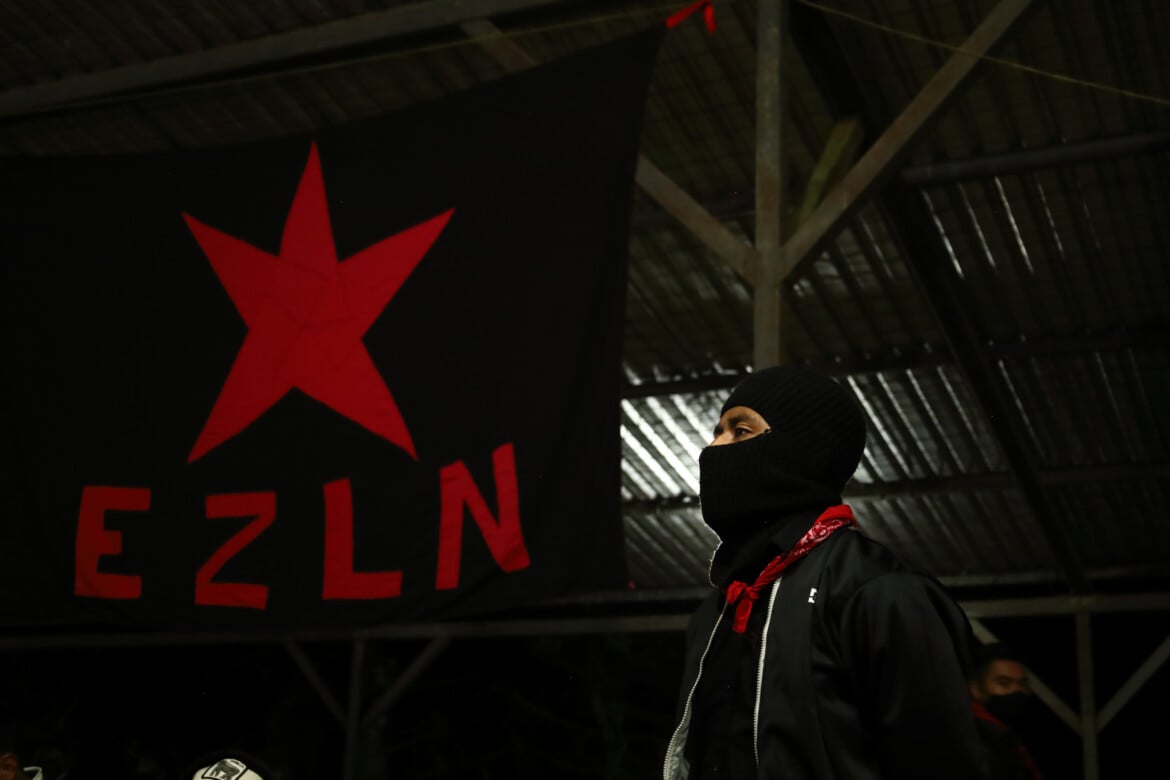Analysis
Subcommandante Marcos returns in a new phase of the EZLN
The Zapatistas have endured because they are able to continuously re-invent themselves, turning organization into strength and determination into utopia.

“Destroying the capitalist system by building alternatives” is the common idea emerging from the celebrations marking 31 years from the uprising by the Zapatista Army of National Liberation (EZLN), which began on Jan. 31, 1994. The women and men of the EZLN are stressing that their fight is in the service of life, that they don’t want war and reject violence, but at the same time are ready to defend themselves from attacks by governments of all stripes, organized crime and economic interests against the indigenous communities in resistance in Chiapas.
At the Oventik caracol [translator’s note: administrative centers in the rebel-controlled autonomous areas], the celebrations began at noon on Jan. 1 with plays and musical performances, followed by a speech from the clandestine Revolutionary Indigenous Committee, read by Subcomandate Moises. The celebration was preceded by three days of meetings and debates in San Cristobal de Las Casas, which marked the start of a new phases in the activity of the EZLN.
The Zapatistas have endured because they are able to continuously re-invent themselves, turning organization into strength and determination into utopia. As Eduardo Galeano said, utopia is what makes it possible to walk forward, and they are not stopping. The EZLN has taken its time, closing the caracols during COVID and never reopening them to the public.
Meanwhile, 200 of the organization's militants have travelled through Europe and stood up to the government of Andres Manuel Lopez Obrador (now led by Claudia Sheinbaum) and its policies of subsuming the artistic, intellectual and NGO spheres of the country under the so-called “Fourth Transformation” and “Mexican humanism” (as Morena, AMLO and Sheinbaum's party, calls its own theoretical foundations).
They also stood up to government policies fueling clashes between communities in service of land exploitation: the “Sembrando Vida” (“Seeding Life”) reforestation project that the Zapatistas have dubbed “Seeding Death.” They have decided to change their organizational model, choosing the path of silence and study while reckoning with their own errors, disconnection, increased violence in the state, and the weariness accumulated over 31 years of rebellion.
They have decided to tell their stories, doing so collectively with the voices of their male and female commanders, and they have given Subcomandante Marcos his public voice back – “a tactical weapon” to draw in media attention and militants from Mexico and around the world. He has been given once again the rank of captain, which he held back in 1984 when he went incognito and joined the rebels in the Lacandona Jungle. Marcos’s undoubted, and perhaps unique, ability to transform the collective thought of the women and men of the EZLN into poetry has been able to codify their political proposal and make it understandable both to those from the rural world and those from the urban one. His ability to write and communicate has allowed the EZLN to conquer a foothold in the communication sphere. At the same time, Zapatismo is much broader and more complex; unfortunately, even after 31 years, the focus of public attention is still drawn to one particular figure and one individual.
The new phase of the Zapatista revolution is called the “Commune”: a peace proposal that includes, among other things, the collective use by everyone of the lands recovered since the start of the insurgency, not only by those who are part of their organization. It is thus a new form, more democratic, participatory, mutualistic and horizontal, of the self-government they inaugurated in 2003. The “commune” is a proposal for anti-capitalist land governance, in which Mother Earth is preserved and private property and privileges are overcome.
This new phase also proposes to connect struggles and resistances at the international level, making a virtue of their differences. During the summer, the EZLN will invite rebels and resistors from around the world for joint discussion as equals, under the banner of recognizing, as Marcos said, that “we are very different, we cannot aspire to dominate each other: it’s pointless, it’s not worth it, and a homogeneous world is not the world we want.” They want “a world made up of many worlds, where we also have a place.”
Originally published at https://ilmanifesto.it/ezln-31-anni-di-rivolta-torna-marcos-vogliamo-un-mondo-plurale on 2025-01-02
